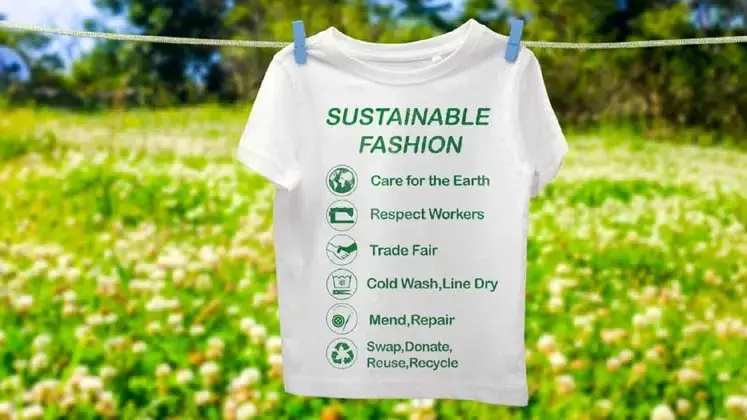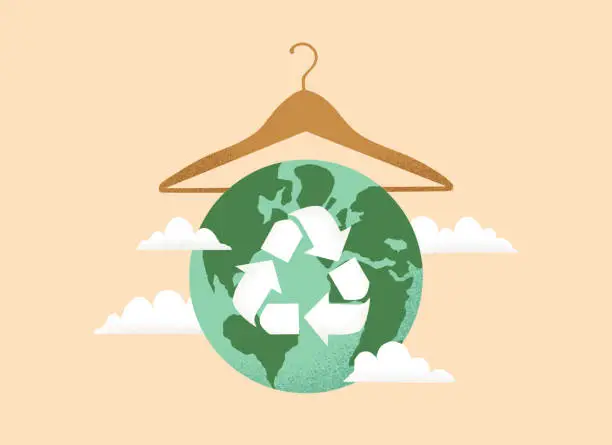The fashion industry is one of the most significant contributors to global carbon emissions, accounting for 10%, according to the United Nations Environment Programme (UNEP).
With an escalating concern for the environment, ethical sourcing has become a rising focal point in the fashion world. This approach, intertwined with fair labor practices, upholds the United Nations’ Sustainable Development Goals and gears toward a sustainable future by curtailing carbon emissions and waste.
Consumer trends have begun to lean heavily into these values, creating a landscape where businesses advocating for fair labor practices, safety standards, and most importantly, sustainable practices, hold an advantage.
This article delves deep into the intricacies of ethical sourcing in the fashion industry, the viewpoint of consumers, strategies for incorporation, and how traceability and transparency play a critical role in propelling ethical sourcing forward.
Consumer Views on Ethically Sourced Clothing
Discerning consumer attitudes towards ethically sourced clothing can offer valuable insights into contemporary shoppers’ priorities and values.
Fair labor practices, climate change, and social and environmental responsibility are high on the agenda for many. Therefore, supporting companies dedicated to these values, regardless of the price tag, is an attainable way people can contribute to change.
Sustainability is highly valued by millennial and Gen Z shoppers, who not only expect clothing brands to prioritize environmental responsibility but also consider the entire lifecycle of their products.
In line with this mindset, second-hand purchases have shed their previous stigma and are now embraced as a legitimate and desirable means of obtaining high-quality items at a lower cost.
Incorporating Ethical Sourcing Strategies in the Fashion Industry

One key aspect for brands and retailers to source ethically and sustainably is maintaining transparent supply chain practices. This means providing visibility into the origins of components used and ensuring fair working conditions at manufacturing sites.
By adopting transparency, brands are able to improve accountability and empower consumers to make informed choices that align with their values.
Additionally, transparent supply chains not only contribute to fair and sustainable treatment of workers but also make brands more attractive to conscientious consumers.
To achieve ethical sourcing, several factors need to be considered, including:
- Traceability: Ensuring the ability to track a garment’s production from beginning to end, allowing for accountability and verification of ethical practices.
- Employee wages and well-being: Prioritizing fair wages, safe working conditions, and overall employee well-being throughout the supply chain.
- Commercial practices: Adhering to ethical business practices and promoting fair trade principles in all aspects of operations.
- Raw material sources: Sourcing materials from sustainable and environmentally responsible suppliers, minimizing the use of harmful substances or processes.
- Environmental justice: Taking into account the impact of production processes on the environment and working towards minimizing negative consequences.
- Governance or brand ethos: Establishing clear ethical guidelines and values that guide the brand’s decision-making throughout the supply chain, ensuring consistency and commitment to responsible sourcing.
By addressing these areas, the fashion industry can make significant strides towards ethical sourcing, promoting a more sustainable and responsible approach to clothing production.
Strengthening Ethical Sourcing through Partnerships
Partnering with non-profit organizations specializing in improving sustainability and working conditions can help brands promote ethical sourcing.
For example, the partnership between outdoor apparel brand Patagonia and the Fair Trade Certified program has proven to be highly impactful. In this program, Patagonia ensures that workers throughout their supply chain receive fair wages, safe working conditions, and additional funds that can be invested in community development projects.
This collaborative effort showcases the brand’s dedication to ethical sourcing while making a positive difference in the lives of the individuals involved in their production process.
Moreover, organizations such as Better Cotton and Social & Labor Convergence Program provide resources, training, and expertise, facilitating ethical sourcing within the fashion industry.
These partnerships showcase a brand’s commitment to social responsibility, fostering sustainable supply chains and promoting fair labor practices.
Traceability and Transparency in Ethical Sourcing
Key strategies to ensure traceability and transparency in ethical sourcing include:
- Implementing strong systems: Brands need robust procedures to continually evaluate the fairness and sustainability of their supply chains.
- Collaborating with stakeholders: Building relationships with suppliers and manufacturers ensures a shared commitment to ethical practices.
- Emphasizing transparency: Accurate and accessible information about a brand’s sourcing practices builds trust with consumers.
- Accountability: Brands must be held responsible for meeting ethical sourcing standards, necessitating regular assessments and corrective actions when needed.
- Continuous improvement: Ethical sourcing is an evolving practice. Constant review and updates of company practices ensure alignment with up-to-date standards and best practices.
Exploring Brands that Prioritize Ethical Sourcing

In today’s conscious consumer landscape, many individuals are actively seeking out brands that prioritize ethical sourcing in their supply chains.
With nagging questions in the consumers’ minds like “Is AGMES sustainable?” or “Is this or that brand practicing ethical sourcing?”, it is evident that transparency and accountability are of utmost importance.
From promoting fair labor practices to utilizing sustainable materials, below are examples of bands that are going the extra mile to ensure a more sustainable and responsible approach to fashion.
Patagonia
Patagonia has long been recognized as a pioneer in ethical sourcing. The brand is committed to minimizing its environmental impact and prioritizes fair labor practices. They promote transparency throughout their supply chain and are actively involved in initiatives to address social and environmental issues.
VEJA
VEJA is a French footwear brand that prioritizes transparency and sustainability. They work directly with small-scale producers and source materials from organic farming and fair-trade practices. VEJA’s commitment to social responsibility is evident throughout its supply chain.
Marks & Spencer
With their Plan A initiative, Marks & Spencer has made significant strides in ethical sourcing. They focus on reducing waste, sourcing sustainable materials, and prioritizing fair working conditions. Their dedication to sustainability is reflected in various aspects of their operations.
Girlfriend Collective
Girlfriend Collective is a sustainable activewear brand that places a strong emphasis on ethical sourcing. They use recycled materials such as plastic bottles and old fishing nets to create their products. Their factory partners are carefully selected for their commitment to fair labor practices.
tentree
tentree is a clothing brand that not only prioritizes sustainability but also actively engages in reforestation efforts. For every item purchased, they plant ten trees in various locations around the world. They also use eco-friendly materials and contribute to fair trade practices.
Conclusion
In summary, ethical sourcing in the fashion industry is not just a fleeting trend but a revolution steering this sector toward a more sustainable future.
With ever-increasing attention to the industry’s carbon footprint, ethical sourcing has evolved into a primary area of focus. Brands that prioritize transparency, fair labor practices, and sustainability are likely to gain favor among the modern-day consumer.
As echoed throughout this article, the inclusion of ethical sourcing strategies, collaborations with non-profit organizations, and an emphasis on traceability and transparency, all contribute to a future where the fashion industry is rightfully held accountable for its impact on the environment and its workers.
Ethical sourcing is not an optional add-on but a requisite in shaping a sustainable, responsible, and equitable future for the fashion industry.
